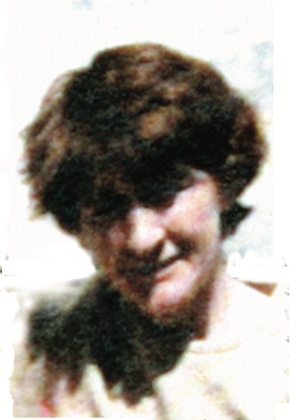
New evidence that victims were allowed to bleed to death has led to demands for a new inquest into the 1971 Ballymurphy massacre. Meanwhile, a decision to wind down criminal proceedings arising from the Bloody Sunday massacre is to face a legal challenge.
In the Ballymurphy massacre, eleven innocent civilians died in British army shootings in August 1971, carried out over a three-day period following the introduction of internment.
A television documentary this week reported new evidence that one of the victims was allowed to bleed to death over a period of six hours.
Joan Connolly (pictured) went outside to find her children when she was shot in the face and leg by British soldiers. Dr Laurence Rocke, who worked for decades at the Royal Victoria, Belfast, has reviewed the case and says he believes she could have survived had she received medical attention.
The soldiers who left the mother-of-eight for dead claim she was armed.
The Parachute Regiment was also behind the Bloody Sunday massacre, when soldiers were allegedly told by their superiors to ‘get some kills’.
“It’s a possibility that the way she was left there guaranteed that she would die, put it like that,” Dr Rocke said.
He believes that despite being hit in the thigh and the face she may have lived for at least six and a half hours after being shot. The nearest hospital - the Royal - was just two miles away - and a few minutes by ambulance. No attempt was made to dress the wounds by the soldiers, who ultimately dragged her body away.
Briege Voyle was only 14-years-old when her mother was shot. The impact on her life - and that of her family - has been immense.
“It kills you, it rips your heart apart. To think your mummy, the most important person in your life when you’re 14 years of age, why should she have to lie in a field like that? Why?
“And be killed like that and left to bleed to death and knowing that lying in that field, she was going to die.”
“That’s no way to treat a human being. You wouldn’t do that to an old dog if you seen him lying in the street.”
Knowing that her mother could have survived and may have still been alive today is now driving Briege Voyle’s fight for justice.
“Give me the truth and I’ll move on. Give me the truth, let me be able to tell to my children and my grandchildren: ‘Your granny was an innocent woman and there’s the page to prove it.’ “
SUNDAY SHUTDOWN
Fourteen people were killed and 22 were injured when British soldiers of the Parachute regiment opened fire on an anti-internment demonstration in Derry on January 30, 1972, now known as Bloody Sunday.
Relatives of those murdered and the wounded have maintained a campaign for justice ever since. Lawyer Peter Madden, acting on behalf of 20 of those, confirmed that his firm is seeking a judicial review of a move to wind down a murder investigation, 42 years on.
The Bloody Sunday families warned last month that the decision to substantially reduce the number of investigators effectively ended their hopes for justice.
“The chief constable’s decision to end this murder inquiry was made on the eve of the commencement of the process where the soldiers were to be interviewed under caution,” Mr Madden said.
The PSNI established the inquiry following the publication of the Saville report into Bloody Sunday which found that all 14 killings in the massacre were “unjustified”. British Prime Minister David Cameron then apologised, saying he was “deeply sorry”.
The PSNI claimed the decision to now reduce the investigating team is due to financial cutbacks.
Mr Madden said the decision was taken less than six months after the PSNI police spoke of their statutory duty to investigate all serious crime including murder during their pursuit of the ‘Boston College tapes’ relating to IRA actions.
“It appears that this statutory duty does not extend to murders committed by the British army,” he said.
![[Irish Republican News]](https://republican-news.org/graphics/title_gifs/rn.gif)
![[Irish Republican News]](https://republican-news.org/graphics/title_gifs/harp.gif)

